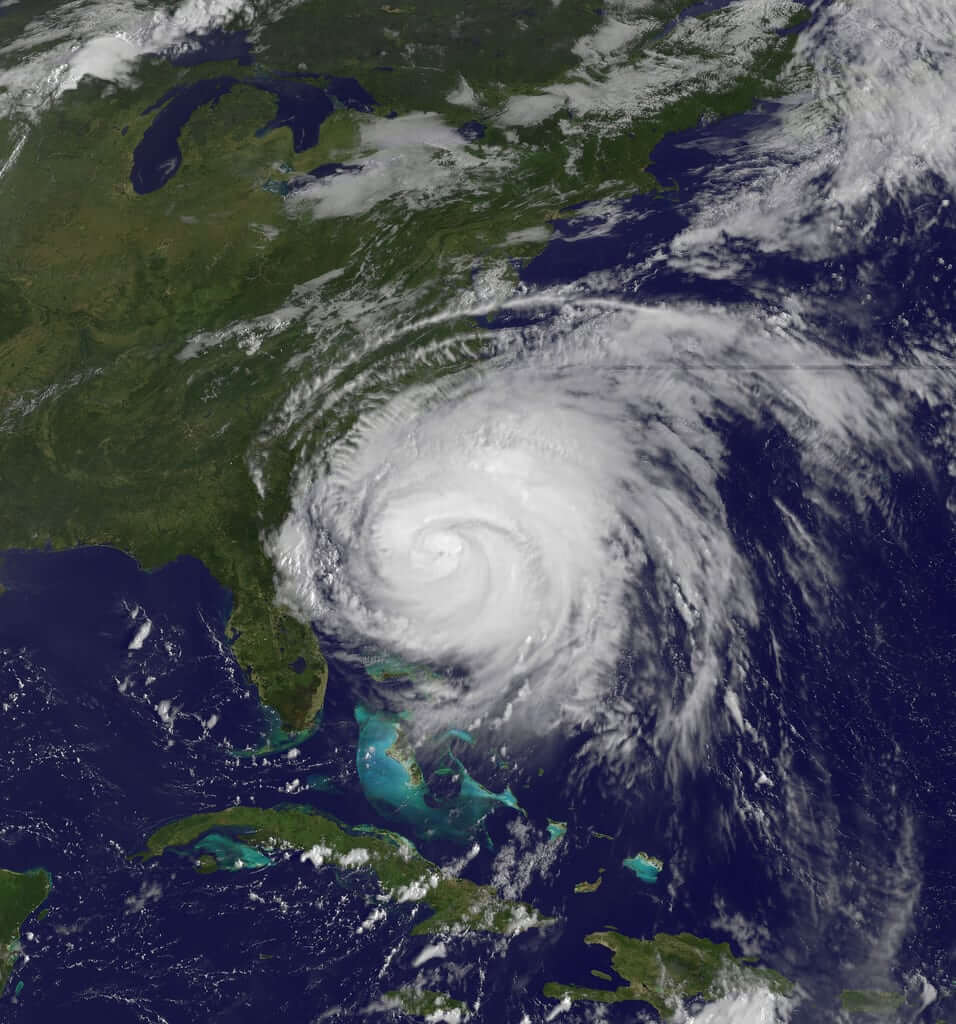Hunkering Down – Hurricane

With Hurricane Cristobal bearing down on the Gulf of Mexico earlier this month, it is a grim reminder that we are not immune. Almost without exception, we get the tail, shoulder or rump of one or two of the dozen or so that form up in the Atlantic between the Caribbean and Africa and bring so much destruction and misery with them as they thunder west and north . . . and Hurricane season is just getting underway.
We live on an island. This column is about that.
Tidal Surges
For Islanders, as bad as the winds will be (more on that below), it is the tides and tidal surges that will do most of the damage, which is why even these tails that go by every year leave so much trouble behind. The storm tide is added to the astronomical tides. And when those waves hit something solid, they generate force dozens of times more powerful than wind of the same speed. Andrew generated a storm tide of 17 feet. Camille in 1969? 24 feet. And of course, there was Sandy who just sat there, at high tide. During a full moon.
Add to that the population growth in our area and the increase in the value of homes and it can spell either “an absolute disaster” or “they were prepared.”
What Is It?
A hurricane is, in the words of scientists, an organized rotating weather system that develops in the tropics. Technically, it is a “tropical cyclone” and it is classified as one of three states, with hurricanes being further classified into levels of destruction. A hurricane has sustained winds of 74 mph (64 knots) or greater.
Hurricanes are called typhoons in the western Pacific and cyclones in the Indian Ocean.
Categories of Hurricanes
We’ve all heard the weather reporter state that “Hurricane ‘x’ is now a Category 3 hurricane and headed for…” What does that mean? Category 1 has winds of 74 to 95 mph; Category 2 is 96 to 110; Category 3 is 111 to 130; Category 4 is 131 to 155; and Category 5 is over 156 mph.
USCG hurricane aircraft reported Andrew, Katrina and Dorian had generated winds over 200mph at various times of the storms.
When looking at Category-5s, no one is saying that there is no difference between a storm that brings 160-mile-per-hour winds and one that reaches 190. The force of the winds goes up with the square of the velocity. In layman’s terms, that means a hurricane with 200-mile-per-hour winds has four times — not just double — the force of one with 100-mile-per-hour winds.
Are You Ready For the Glancing Blow?
Look, if a Category-4 or -5 gets up here like in 1938, there are no levels of preparedness except evacuation. A storm surge like Camille’s basically means that everything “south of the highway,” as real estate agents like to classify the choicest properties on Long Island, is gone for all intents and purposes. But what if the glancing blow like Ivan’s in 2004 or, Earl, who came by earlier in 2012, came in head-on? How can you be ready?
Prior To The Storm
- Have a family action plan – if you’re at caught at school or at work, who do
you call? To grandmother’s house we go? - Are you flash lights working? Do you have canned goods and water supplies? Cash? Portable radio?
- Where ARE you going to move the boat? Don’t even THINK about staying
on her… - How about your prescription medicines? A first-aid kit?
During the Storm
- Have the radio or TV on. If power goes out and you don’t have a portable
radio, I’d get the kids in the car and “to grandmother’s house we go…!” - Propane tanks on your property? Shut them off, completely.
- Turn the refrigerator up all the way and don’t open the door idly.
- Fill the bathtub with water. How about the big spaghetti pot? Anything that
can hold water and keep it clean. - If ordered to evacuate, do so. Immediately. And tell someone where you are
going. - When evacuating, don’t drive across flowing water. 2’ of flowing water can
carry your car away. Yes. Only 2’ of moving water. Turn around and go
another way. There is no other way – call 911 or the US Coast Guard.
After The Storm
- If you’ve been ordered to evacuate, don’t go back until the area is declared safe.
- If you see someone that needs rescuing, unless the threat of loss of life is
imminent, call 911. - See standing water? Do you know if any power cables lie in it?
- Never use candles and other open flames indoors. Keep the flashlight at your
side…
This is by no means an exhaustive list. But Earl just sent us a wake-up call. Next week, we’ll talk about prepping your boat.
If you are interested in being part of USCG Forces, email me at JoinUSCGAux@aol.com or go directly to the D1SR Human Resources department. Vincent Pica is Commodore, First District, Southern Region (D1SR) of the United States Coast Guard Auxiliary.



